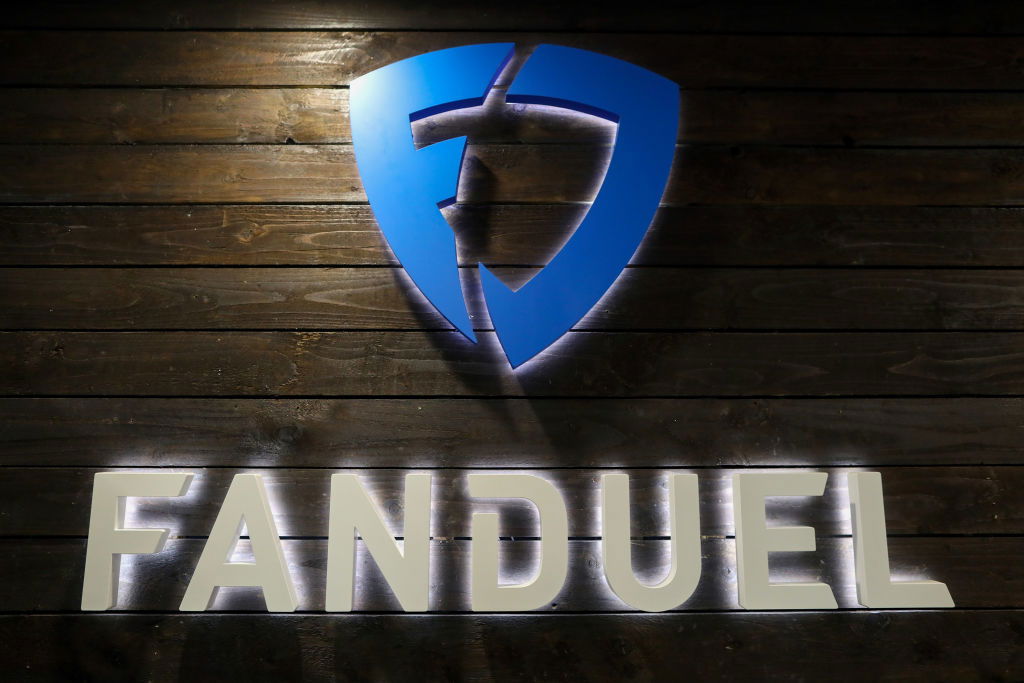
November 9, 2023
‘Not For The Faint Of Heart’: The Battle For Supremacy In The Booming U.S. Sports Betting Market
FanDuel CEO Amy Howe says online sports betting isn't for everyone as new competition emerges in Disney and Fanatics.
According to the American Gaming Association, since the Supreme Court legalized sports betting nationwide in 2018, more than $220 billion has been wagered at gambling outlets.
The continued growth of sports betting, which is legal in 35 states and Washington, D.C., has given FanDuel and DraftKings a foothold in the industry as they hold more than 80% of the sports betting market, while Caesars and BetMGM are trying to establish themselves.
Now, others are getting into the game.
Disney’s ESPN announced their sportsbook ESPN Bet, and the sports apparel company Fanatics, founded by Michael Rubin, purchased the U.S. operations of PointsBet after a several-year pursuit of an entry to the sports betting market.
FanDuel CEO Amy Howe told CNBC’s Contessa Brewer at the CNBC Global Evolve virtual summit that while she expects to see more “well capitalized, very strong competitors on the field” as the sports betting industry grows, there are reasons why others have failed to get a grip on the industry.
“What we know is you’ve got to have a superior product experience, right? At the end of the day, if your product doesn’t work, it doesn’t matter how great your brand is; you got to have a really phenomenal experience,” Howe, who joined FanDuel from Ticketmaster in 2021, told Brewer. “But at the same time, one of the things that we’re seeing, which is not dissimilar to many ecommerce industries, is that you’ve got to have scale.”
Sports betting in the U.S. has grown significantly in recent years to the point where ESPN and other sports networks are hosting a litany of shows centered around sports betting.
FanDuel has become a titan in sports betting, having secured partnerships with the NFL, NBA, MLB, NHL, and NASCAR, as well as numerous teams and even Google, which purchased the rights to NFL Sunday Ticket for $2 billion.
However, the competition is also growing. DraftKings reported a 57% increase in quarterly revenue on Oct. 2. Additionally, The Dallas Cowboys became the first NFL team to partner with a casino and sportsbook.
Howe said getting into sports betting may seem like a lucrative business, but there’s a lot of leg work and money to be spent before revenue starts pouring in.
“In a world like online sports betting, the barriers to entry are high. … You have to be licensed; you have to navigate a very complex regulatory environment. There are significant costs to spend in creating a great product and technology platform. And oh, by the way, you’re spending a lot of money making sure that, again, you can responsibly bring consumers to your platform,” Howe said.
“It’s certainly not for the faint of heart. And if you’re sitting there with a low single-digit share, and you don’t have that scale advantage over time, it just becomes harder to reinvest back into giving what consumers want.”
RELATED CONTENT: Father and Son Convicted in Massive Lottery Money Laundering Operation